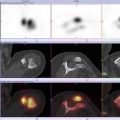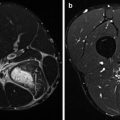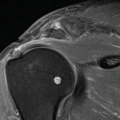© Springer-Verlag Berlin Heidelberg 2015
Andor W.J.M. Glaudemans, Rudi A.J.O. Dierckx, Jan L.M.A. Gielen and Johannes (Hans) Zwerver (eds.)Nuclear Medicine and Radiologic Imaging in Sports Injuries10.1007/978-3-662-46491-5_5252. The Paralympic Athlete
(1)
Sports and Rehabilitation Medicine, University Medical Center Utrecht, Utrecht, The Netherlands
(2)
Department of Rehabilitation Medicine, Center for Rehabilitation, University of Groningen, University Medical Center Groningen, Groningen, The Netherlands
Abstract
This chapter discusses elite sports participation by people with a (motor) disability. Successively, the history of the Paralympic Summer and Winter Games, as the main elite sporting events, which also focus on the International Paralympic Committee (IPC), and counseling of athletes with a disability are discussed. Furthermore, injuries in the disabled athlete, doping, and classification of athletes are described.
52.1 History of the Paralympic Games
In 1948, Sir Ludwig Guttmann, a neurologist from England, organized the Wheelchair Games in the British Stoke Mandeville, at the time of the London Olympics. By organizing these games, Sir Guttmann aimed to improve the quality of life of the British wounded from World War II (Vanlandewijck and Thompsonl 2011). In 1952 the games evolved into an international event. Besides participants from Great Britain, Dutch athletes also took part. This effectively marked the beginning of the International Paralympic Games. At the Olympic Summer Games in 1960 in Rome, a definitive link was established with the Paralympics. Immediately after the Olympics Games, 400 disabled athletes from 23 countries participated in eight sports. From 1988, the Paralympics was held in the same accommodation and cities as the Olympics. At the Paralympic Games in London 2012, there were 4,200 active athletes.
The Paralympic Winter Games were first held in 1976 and took place in Omsköldsvik, Sweden. Since then, these games are also held every 4 years.
The international organization, since 1989, responsible for the Paralympic Games is the IPC. The IPC is a nongovernmental organization based in Bonn, Germany, and has as one of its main responsibilities the organization of the Paralympic Games and Paralympic Winter Games (www.paralympic.org).
52.2 Counseling of Elite Athletes with a Disability
Counseling and helping athletes with a disability essentially does not differ from counseling and helping able-bodied athletes. However, specific knowledge and skills are required that not every physician has mastered. Often a sports physician is involved. In addition to his or her expertise in the field of injuries of the musculoskeletal system, the sports physician may act as a general practitioner, treating everyday illnesses, and can offer some psychological support. The sports physician is also a team player and coordinates, from the health perspective, the effort of the physiotherapy, sports technician, trainer, coach, and athlete itself. Furthermore, in addition to the role and capacities of the sports physician, there are a number of other requirements concerning the counseling of elite athletes with a disability. Expertise and knowledge of the specific diagnosis and the concomitant disabilities are conditional and can be contributed by a rehabilitation physician. This predominantly concerns the diagnoses: spinal cord injury (33 %), cerebral palsy (20 %), amputation (10 %), visually impaired (20 %), and the so-called les autres or others (17 %). The latter category includes athletes with a physical disability which do not strictly fall under a specific category, such as athletes with dwarfism, multiple sclerosis, or limb defects caused by “thalidomide.”
The rehabilitation physician coordinates a large multidisciplinary team, aiming to solve all possible issues concerning diagnosis-specific problems, concerning orthotics and prosthetics, as well as other sports-specific aids. Also the rehabilitation physician is involved in classification (see paragraph 52.5).
Cooperation between a sports physician and a rehabilitation physician serves as the ultimate solution to optimally counsel and help the elite athlete with a disability. In addition, there are often a team manager, a trainer, and in some cases a video analyst involved. In the Paralympic Village, there is also an orthopedic workshop available and accessible for all athletes.
The formal roles of the sports physician and/or the rehabilitation physician are comprehensive. Important aspects in preparation phase toward the games are to:
Conduct medical examinations of elite athletes with a disability.
Stay updated, free articles. Join our Telegram channel

Full access? Get Clinical Tree







